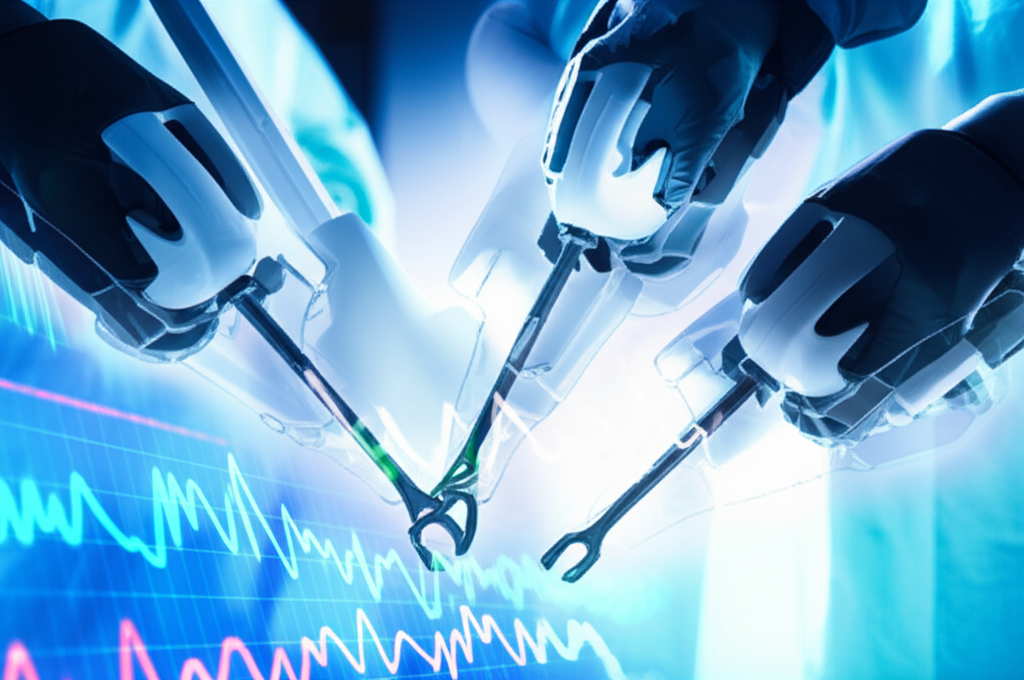What if, a surgeon performing a delicate, life-saving operation, their focus unwavering despite the pressures of time, noise, and physical strain. Now imagine a future where technology can assess the surgeon’s cognitive load and stress levels in real-time, providing crucial insights to optimize performance and prevent errors. Researchers at Universiti Teknologi Malaysia (UTM) are working to make this future a reality.
Robot-assisted surgery (RAS) is revolutionizing the medical field, offering enhanced precision and dexterity compared to traditional methods. However, the impact of RAS on the surgeon’s cognitive and physical well-being remains largely unexplored. This UTM study delves into this crucial area, investigating the workload and stress experienced by surgeons during robot-assisted procedures.
The research team employed a neuroergonomic approach, monitoring an expert surgeon’s physiological signals – brain activity (EEG), muscle activity (EMG), heart rate (HR), and skin conductance (EDA) – while performing simulated surgical tasks. These tasks were conducted under varying conditions, including different noise levels, surgical postures, and task types, designed to elicit a range of stress and workload responses. Subjective workload was also assessed using established questionnaires (NASA-TLX and SURG-TLX).
The wealth of data collected was then analyzed using advanced machine learning techniques. Impressively, a CatBoost model achieved 79.5% accuracy in predicting surgical task performance. By using SHapley Additive exPlanations (SHAP), the researchers identified the key factors influencing performance: subjective workload, average heart rate, and muscle activation. Interestingly, the contribution of brain activity varied depending on the specific surgical conditions.
This research demonstrates the power of combining subjective feedback with objective physiological measurements to predict surgical performance under pressure. This is important because surgical errors are a major concern in the medical field. According to the World Health Organization, adverse events occur in 10% of hospitalizations. Tools that can predict performance, especially under stressful conditions, can lead to improvements in patient outcomes.
This pioneering work from UTM paves the way for developing real-time monitoring systems that can provide surgeons with personalized feedback, optimize their working environment, and ultimately enhance the safety and efficacy of robot-assisted surgery. Future research will focus on expanding these findings to real-world surgical settings and developing interventions to mitigate surgeon stress and fatigue.
DOI: https://doi.org/10.1109/icint65528.2025.11030899


